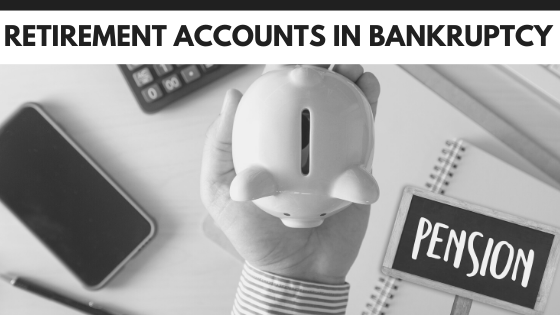
Retirement Accounts in Bankruptcy
- December 31, 2019
- Admin
- Comments Off on Retirement Accounts in Bankruptcy
Contact us today at Winsor Law Group to discuss your options for both personal and business bankruptcy relief.
The effect of bankruptcy on retirement accounts and pension plans is a common concern. For employer-sponsored ERISA-qualified plans, the answer is simple: the pension and retirement accounts are completely “exempt” under Federal law. ERISA pre-empts any laws t, hat would allow creditors (or a bankruptcy trustee) qualified plans to be reached by creditors.
Self-directed or “solo” 401(k) plans are a little more complicated. This type of plan is not, strictly speaking, an ERISA plan because no employer is involved. While not exempt under Federal law per se, Arizona law exempts all funds payable to the debtor held in an account created under Internal Revenue Code sections 401(a), 403(a), 403(b), 408, 408A, 409, and 457 (401(k) plans arise under IRC §401(a)) . However, any monies transferred to such accounts within the 120 days before filing bankruptcy are not exempt and a trustee can recover those monies. This 120-day rule applies to rollovers from one account into another account. The intersection of bankruptcy laws and exemption laws can be complicated, so contact Winsor Law Group to discuss your unique debt relief needs.
Contact us today at Winsor Law Group to discuss your options for both personal and business bankruptcy relief.
Disclaimer: This article is for informational purposes only. If you have questions about filing bankruptcy, please fill out our short questionnaire and Winsor & Reed will set up a consultation to see if bankruptcy is the right option for you. We are a debt relief agency. We help people file for relief under the Bankruptcy Code.
Additional questions and answers:
